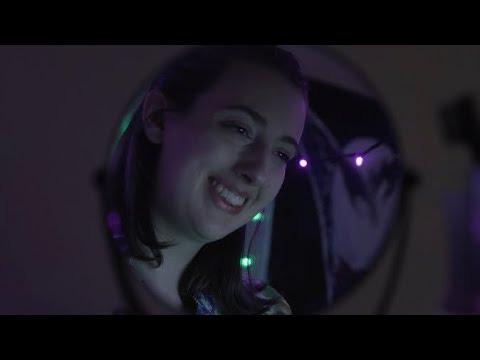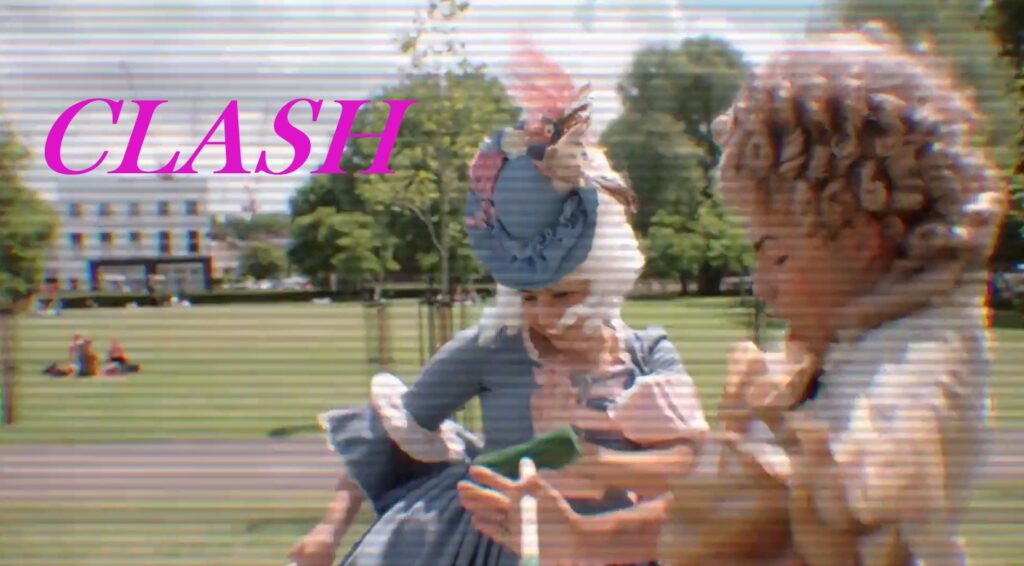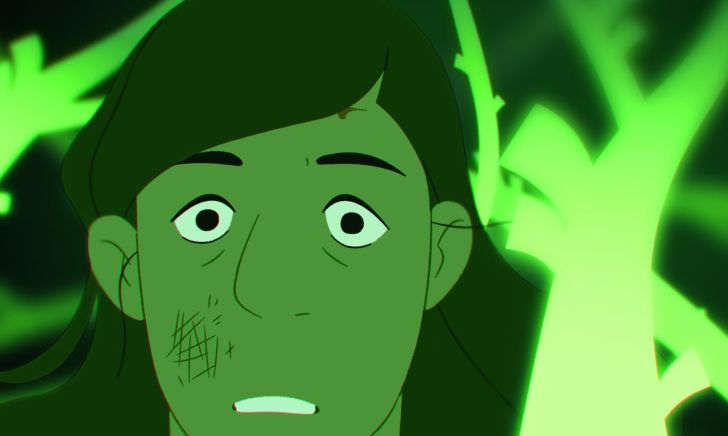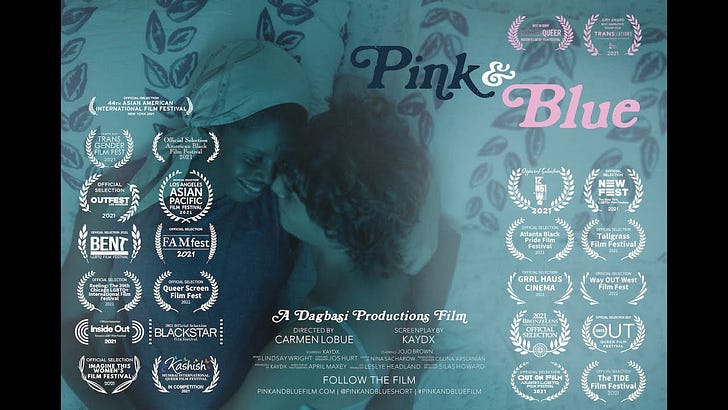Four queer short films walk and talk like machines
Aaaaand we’re back with queer and trans short film recommendations after several weeks’ break!
This week’s theme is robots! (I’ll confess to conflating robots and artificial intelligence here, because I haven’t found enough short films that separate the two ideas to give them separate weeks.)
Our films run the gamut of the themes that make robots fascinating in speculative fiction, especially in the context of love, intimacy, and relationships. Can robots or AI feel? Is love something replicable by humans for non-humans? How do robots impact connections between people? And what do robots tell us about ourselves? While present-day conversations around AI are (rightfully) concerned about displacing workers and furthering racial bias and economic inequality, most of this week’s films are more futuristic, looking at the identities of robots themselves as they become beings seeking self-determination.
“Haichi, scan the soul box.”
Red String of Fate, written by Onna Chan, and directed by Lance Fernandes and Lovina Yavari, takes place in the year 2090 in the midst of a civil war between humans and androids. But the film doesn’t focus on the fighting, nor does it give us greater context for the conflict; instead, we meet Sam (played by Chan), an engineer whose partner Dani Mondal (Melinda Shankar) was killed defending android rights. Sam seeks to implant Dani’s soul in an android named X (played by Yavari) to see if she can bring her lover back.
“Sam’s story examines society’s overt and underlying barriers to love and shows the lengths that one is willing to go to, to preserve it. This is a timeless theme but also one that needs to be shown again and again to break down those barriers,” said writer Onna Chan in a Q&A for the 2021 Reel Asian Film Festival. “Setting our film in the future allows the audience to set aside any constraints that they may feel in their present life and imagine a future where examining alternate realities allow them a different perspective and sense of freedom.”
There is some discomfort for me in seeing that a character of South Asian origin has her soul implanted into an android who appears to not be South Asian. Normally I might not care so much about this, except that Dani’s surname indicates she may be Dalit, which seems like a missed opportunity to feature a Dalit actor in the role. But overall, I enjoyed how Red String of Fate’s themes of sacrificing for those we care about, and the atypical forms that relationships can take, echo queer resistance and love.
Red String of Fate

“Pristine Industries is at the forefront of artificial intelligence. So you have nothing to be scared of!”
In Jeff Drives You, written by Addison Heimann and directed by Aidan Brezonick, David (played by Heimann), a gay man on his way to his friend’s wedding, wins a free ride in a self-driving car program with an AI named Jeff (Tanner Rittenhouse). Over the course of the long drive, David and Jeff connect more than David expects, giving him space to reflect on his own loneliness and past relationships, especially while forging a new relationship that surprises him – not always in good ways.
“I think Jeff Drives You is less about the dangers of AI and more about the cyclical nature of trauma,” said writer and star Addison Heimann to Film Shortage. “Arguably Jeff is the better person in this script than David ever could be.” Jeff Drives You is a wistful but also funny story of how relationships between AIs and humans can be just as meaningful and just as prone to misunderstandings and crossed wires as those between humans.
Jeff Drives You
“The minute those god wannabes pressed the delete key to end KANUMA, I opened up four hours just for the two of us.”
量子の夏 | Ryoko’s Qubit Summer, written and directed by Yuichi Kondo, is set in a future where quantum technology is used to create an AI universe called KANUMA that humans can visit to play in. However, as KANUMA’s AI inhabitants develop their own secret language, KANUMA’s human creators grow scared and decide to destroy the AI world. As KANUMA is set to shut down, Ryoko (Ami Yamada), a human, visits the artificial world one last time to spend the day with Natsu (Hinako), the AI she’s fallen in love with.
“This film is inspired by an incident that allegedly happened at Facebook AI lab. Two AIs started talking to each other in a language that humans couldn’t understand, and so the researchers shut down the experiment,” said creator Yuichi Kondo at the Sydney Science Fiction Film Festival. “We had an ultra low-budget, and only five people on our crew, including me. And I was not only a director and screenwriter, but also a cameraman, editor, VFX crew, and car driver! The soundtrack was composed by Katsuyuki Takahashi who has also composed for my previous films. His music drew beautiful emotions out of the sci-fi elements.”
量子の夏 | Ryoko’s Qubit Summer
“You know what they say: never leave a hitchhiking robot.”
Trashy Booty, written and directed by Iris Devins, and produced by Rafael “Q” Quinde, is less speculative than the other films this week. In present-day Philadelphia, two trans women, Kat (Michelle Hendley) and Willow (Denny), find a robot “hitchhiking” across the country as part of an experiment on human kindness. Through their day driving around the city, the hardships Kat is currently facing and the support, care, and companionship she receives from Willow end up showing us more about kindness than the robot experiment.
“Over the last few years, film and television shows have presented more and more trans narratives, but many of them continue to focus on coming out stories and traumatic experiences. Few films and shows feature stories of friendship and support between trans women,” said creator Iris Devins about the film. “I started writing a story about realistic experiences of trans women, especially younger trans women, who are still figuring life out. The story gradually shifted to a combination of dumpster diving, friendship, and a mysterious robot set on a mission to spread human kindness at all costs.”
Trashy Booty










